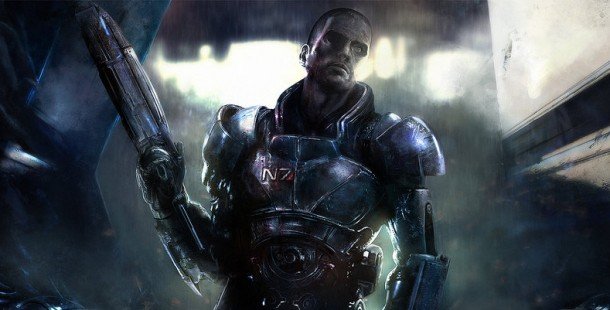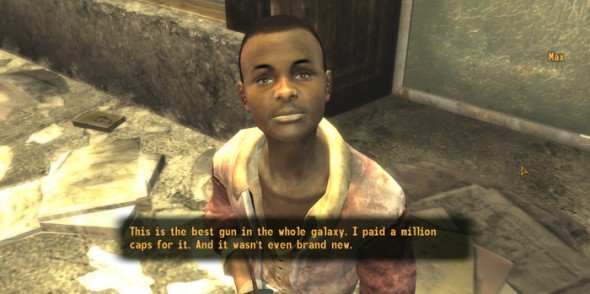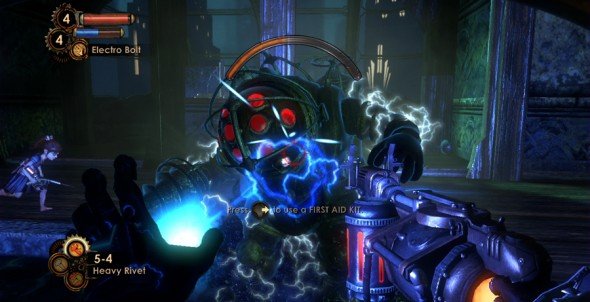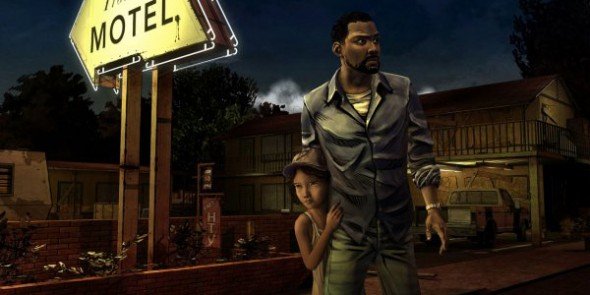What do game writers and designers think about BioWare changing the Mass Effect 3 ending?

To address some fans' feedback about the game's ending, BioWare has said it's working on "a number of game content initiatives” for Mass Effect 3 in addition to existing DLC plans. The possibility of BioWare modifying the game's ending has stirred a conversation on Twitter, message boards, development blogs, and elsewhere: would changing a game's final moments based on feedback set a bad precedent for video games' creative integrity? Or is it actually a way of taking advantage of the unique ease with which games can be edited?
One voice I wanted to include in this dialogue was that of BioWare's fellow writers and designers throughout the industry. To find out what they thought, I talked to Chris Avellone, Gary Whitta, Greg Kasavin, Jesse Schell, Chuck Jordan, Paul Taylor, Steve Gaynor, Susan O'Connor, and Bobby Stein. They've worked on Fallout: New Vegas, Bastion, Far Cry 2, Frozen Synapse, BioShock, BioShock 2, and other games. I've presented their opinions here, which are only edited for clarity.
Looking to improve your ending? Check out our in-depth guide to Mass Effect 3's War Assets and Readiness before reloading your save.
I asked each person the following question: Do you object to the idea of developers changing a game's narrative based on player feedback after release? Or do games (especially games that promote player agency) present a unique opportunity for "story collaboration" between users and producers that designers should take advantage of?
Here are the responders and their responses.

Chris Avellone
Avellone is Obsidian's Creative Director, Chief Creative Officer and a co-owner at the studio. His game credits include Fallout 2, Icewind Dale II, Star Wars: KOTOR II, Neverwinter Nights 2, Alpha Protocol, Fallout: New Vegas, and F:NV's DLC.
"Games should take advantage of feedback and using it for DLC changes and sequel changes. I feel BioWare does this from game to game already, and it's the reason that some companions have achieved the prominence and romance options in the games that they do because the players strongly responded to those characters—and I'll be blunt, we as narrative designers have no idea how a character's going to be received, and “breakout” characters we envision may end up not being that at all once the game is released into the wild.
The biggest gaming news, reviews and hardware deals
Keep up to date with the most important stories and the best deals, as picked by the PC Gamer team.
Most importantly, game development is an iterative process. Our goal is to entertain our players. No one knows more about what they consider “fun” than the player themselves. While you can't please everyone, there are iterations that make sense to do in DLC content and sequels. As a case study, the DLC process from Fallout: New Vegas allowed us to collate all the weapon feedback from FNV and adjust it, and it also allowed us to take a long look at what gameplay elements and mods people were making for New Vegas and incorporate that into the narrative and quest lines. The best example is we noticed that people were making a LOT of homebase mods. So, we designed a good chunk of Old World Blues to specifically revolve on you making a new homebase in New Vegas with all the improvements people were pointing out. Even better, we were able to make it part of the story and the characters. Everybody wins, and people seemed to really enjoy it based on the fan (and press) response—but the catch is, we never would have thought to do that without analyzing the fan response and taking that into account."

Steve Gaynor
Gaynor was a Level Designer on BioShock 2, then Lead Designer and Writer of the Minerva's Den DLC. He worked on BioShock Infinite for a year before leaving Irrational to go indie.
"There's great value in thinking about the story of a game as a collaboration between the player and the developers. In the collision of fiction and game mechanics, my experience of a game is never exactly the same as yours; the more systemic and divergent the results of the player's contribution, the better. Much of the player's experience of Deus Ex or Skyrim is the story of how the player played that game, and how they shaped the gameworld to express themselves; the experience of Minecraft is entirely that. It's incredibly powerful.
But things like "cutscenes" and "endings" are completely authored by the developers, and the developers altering the authored content of a game after the fact has nothing to do with the systemic player-developer collaboration described above. It's no different than a movie or book being released and, upon fan outrage, being edited and re-released to pander to the most vocal dissenters in the audience. It's not unique to games; it is unique to a certain type of entertainment media that attracts fans who feel entitled to dictate exactly how the product should bend to their desires, instead of standing as a unique experience to be enjoyed, or not, on its own merits."

Gary Whitta
Whitta was Editor-in-Chief of PC Gamer for four years. He wrote the film Book of Eli. Whitta is currently a story consultant and writer for Telltale's The Walking Dead game, for which he'll write the fourth episode.
"I'll be interested to see how BioWare will respond to the fan reaction in terms of future content—clearly they intend to do something, but what remains to be seen. As much as it left me with many questions and ultimately feeling kind of uncomfortable, I really hope they don't attempt to retcon or in any way "undo" the ending they presented. I've always felt that games like Mass Effect are all about living with the consequences of your choices, no matter what they may be, and I think BioWare should do the same thing here and stick with their original choice, trust their original creative instinct, rather than allow the fan response to cause them to second-guess themselves. My gut feeling is that they will add new content to help clarify and resolve some of the questions that are out there while sticking to their original creative intentions and I while that's less bothersome than calling a complete do-over, as a storyteller it still bugs me.
I read an op-ed which argued that since videogames are a "malleable artform" that get altered and patched all the time people shouldn't be bothered by this. Well it bothers the hell out of me. Games usually get changed for technical reasons like bug fixes and multiplayer balancing. Altering one of a game's artistic cornerstones—story—merely to appease the malcontents is wrong. While I'm sure George Lucas would agree about the malleability of art, I think changing the ending of such a high-profile title would set a very disturbing precedent for games."

Evan's a hardcore FPS enthusiast who joined PC Gamer in 2008. After an era spent publishing reviews, news, and cover features, he now oversees editorial operations for PC Gamer worldwide, including setting policy, training, and editing stories written by the wider team. His most-played FPSes are CS:GO, Team Fortress 2, Team Fortress Classic, Rainbow Six Siege, and Arma 2. His first multiplayer FPS was Quake 2, played on serial LAN in his uncle's basement, the ideal conditions for instilling a lifelong fondness for fragging. Evan also leads production of the PC Gaming Show, the annual E3 showcase event dedicated to PC gaming.

